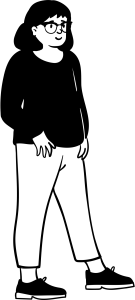
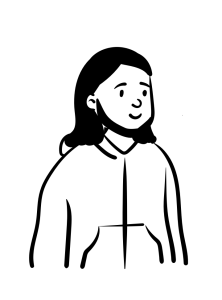
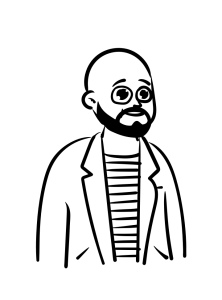

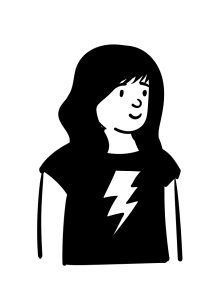

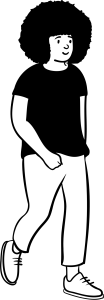
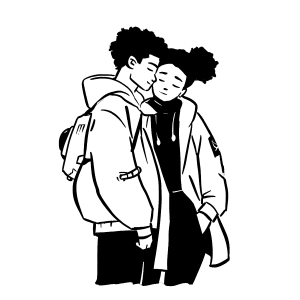
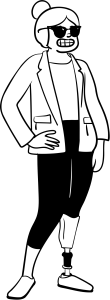
Scarleteen (https://www.scarleteen.com): “Scarleteen is a progressive, independent sexuality and relationships education media and support organization and website. Founded in 1998, as of 2022, Scarleteen.com is visited by a few million diverse people each year… most between the ages of 15 and 30. It is often the most popular and most widely used site specifically providing sex and relationships information and support for young people worldwide.”
Our Bodies Ourselves Today (https://www.ourbodiesourselves.org) is a non-profit organization that advocates for – among other things – sexual health and reproductive justice for women and girls. They have resources on a variety of topics, including menstruation, contraception and abortion, pregnancy, mental health, STIs and HIV, sexual anatomy, and gender-based violence.
Power To Decide (https://powertodecide.org) provides trusted, high-quality, accurate information—backed by research—on sexual health and contraceptive methods to aid in the making of informed decisions.
I Wanna Know (https://www.iwannaknow.org) offers in-depth information about sexual health, sexually transmitted infections (STIs), healthy relationships, and more for teens and young adults.
Sexplanations (https://www.youtube.com/user/sexplanations): In this Youtube series, Dr. Lindsey Doe, a doctor of human sexuality and clinical sexologist, answers sex-related questions in lighthearted, thorough videos. Dr. Doe aims to provide shame-free sexual education for all.
Guerilla Sex Ed (https://guerrillasexed.org): An online resource for those seeking out alternative sources of sex education. This site also provides information for those who want to advocate for better sexuality education within their school districts.
Young Men’s Health Site (https://youngmenshealthsite.org) is a website developed by the Division of Adolescent and Young Adult Medicine at Boston Children’s Hospital with the purpose of providing carefully researched health information, including information about sexual and reproductive health, to teenage boys and young men.
Center for Young Women’s Health (https://youngwomenshealth.org) is a partnership between the Division of Adolescent and Young Adult Medicine and the Division of Gynecology, at Boston Children’s Hospital, developed with the goal of providing carefully researched health information, including information about sexual and reproductive health, to girls, young women, transgender/nonbinary, and intersex young people.
Bedsider (https://www.bedsider.org) is a website that offers sex education information ranging from birth control to sex tips including information on hookups and boundaries.
Moxie (https://ppmoxie.org) is a program brought to you by Planned Parenthood of Central and Western NY that allows teens to engage in community programs and teen-led initiatives. Resources offered include Peer Health Advocates, RESTORE, and In Control, which provides educational, vocational, and recreational resources in addition to information on sexual and reproductive health.
The Endo Co (https://www.theendo.co) is a nonprofit that aims to raise awareness, promote reliable education and increase research funding for endometriosis. This site includes links to online support groups and strategies for communicating with medical providers.
Geneseo’s Safe Zone Program (https://www.geneseo.edu/safezone) trains students, staff, and faculty to become allies and educate themselves on oppression, heterosexism, and homophobia. To attend or request a training, please click the following link:
https://www.geneseo.edu/safezone/safe-zone-open-training-sessions-and-request-training
You can also apply to be a Safe Zone trainer; for more information, click here: https://www.geneseo.edu/safezone/become-safe-zone-trainer
Asexual Visibility and Education Network (https://www.asexuality.org): “AVEN hosts the world’s largest online asexual community as well as a large archive of resources on asexuality. AVEN strives to create open, honest discussion about asexuality among sexual and asexual people alike.”
Refuge Restrooms (https://www.refugerestrooms.org) connects intersex, non-binary, and trans people with bathroom locations nationwide. People can put in their location and immediately be connected with local bathroom locations.
Queer Youth Assemble (https://queeryouthassemble.org) is a non-profit that serves the interest of queer people under 25. In addition to social events, they distribute educational resources and zines, host support groups, and feature volunteer opportunities.
Queer Health Podcast (https://www.queerhealthpod.com) is dedicated to bringing medical information about queer health to queer communities. The hosts are medical doctors who use current scientific evidence to inform their content.
Intersex Stories (https://www.youtube.com/user/pidgejen) is a Youtube series created by Pidge Pagonis, a nonbinary and intersex activist. They make videos on living as an intersex person, discrimination, and “cosmetic” surgeries that are routinely performed on intersex children without consent to “correct” their sex.
Straight For Equality (https://straightforequality.org/topic/ally) is a national outreach and education program to empower and educate new allies who may or may not have direct connections to the LGBTQIA+ community.
Guide To Allyship (https://guidetoallyship.com) outlines how to be a more “thoughtful and effective ally.” This guide includes information ranging from what a true ally is, what marginalized individuals need from allies, and how to respond to those who need support with self-awareness and empathy.
LGBTQ Equality Maps (https://www.lgbtqcenters.org/AdditionalResources/LGBTEqualityMaps) provides maps outlining laws that affect LGBTQ+ Americans on a state-by-state and issue-by-issue basis
The Labia Library (https://labialibrary.org.au) is an independent, feminist, not-for-profit women’s health promotion, advocacy, and support services. They provide several services, a few being: helping you locate a gynecologist, a Q&A on vaginal health, and pictures of what labia look like (hint – they’re all “normal!”).
The Beautiful Cervix project (https://www.beautifulcervix.com) provides information about the menstrual cycle, fertility, hormones, and pictures of the cervix and vagina throughout one’s cycle. They offer cervical self-exam kits that allows people to examine their own cervix for any irregularities.
My Body Gallery (https://www.mybodygallery.com) is a safe space where you can see what “real women look like” and upload pictures of real, unedited bodies to break the stigma social media has created and connect with people who have similar bodies as you.
Sexuality and Disability (https://sexualityanddisability.org): Sexuality and Disability is constructed as a bunch of questions a woman with a disability might have – about her body, about the mechanics and dynamics of having sex, about the complexities of being in an intimate relationship or having children, about unvoiced fears or experiences of encountering abuse in some form.”
Enhance the UK (https://enhancetheuk.org/the-love-lounge-live) is a global campaign which aims to raise standards in health and awareness for disabled people. This organization runs an online forum providing free advice on all things sex, love and disability called the Love Lounge.
Girls With Nerve (http://girlswithnerve.com) is a site where teens with epilepsy can find information about sexual health, stories from other teens with epilepsy, suggestions for talking with doctors about tough topics, and more.
Sex Ed for Self-Advocates (https://researchautism.org/self-advocates/sex-ed-for-self-advocates) acts as a guide for sexuality and sex education specifically for autistic people aged fifteen and up. This website provides information on dating, puberty, consent, and sexual orientation.
The Body (https://www.thebody.com) is a website dedicated to sharing up-to-date, accurate information about HIV, including symptoms, testing, diagnosis, sex with HIV, PEP and PrEP, and current news. They have resources for specific demographics, such as women, gay men, trans people, and those newly diagnosed.
Sister Love (https://www.sisterlove.org) is an organization dedicated to combating the effects of HIV and reproductive injustice on women and their families. They have educational resources, research studies, workshops, and advocate for public policy changes. They also offer free HIV self-test kits that you can request online.
Your Life (https://www.your-life.com/en/contraception-methods/which-contraception-is-right-for-me) is a website that provides information on contraception methods as well as your body as a whole. Your life also offers blogs that address issues such as “How do I ask my partner to use a condom?”
Love Is Respect (https://www.loveisrespect.org) is the inclusive and safe national resource to disrupt and prevent unhealthy relationships and intimate partner violence. They offer 24/7 information, support, and advocacy to young people between the ages of 13 and 26 who have questions or concerns about their romantic relationships.
The information on this site is for educational purposes only. It does not replace a personal relationship with a licensed health care provider and is not intended to provide medical advice. We strongly recommend that you make your health care decisions based on your own research and knowledge of your body, in collaboration with one or more licensed health care providers.
The hosting for this website is provided by SUNY Geneseo as a courtesy, but it is not an official College publication. The statements and opinions expressed in content of this website do not represent the official position or policy of SUNY Geneseo.